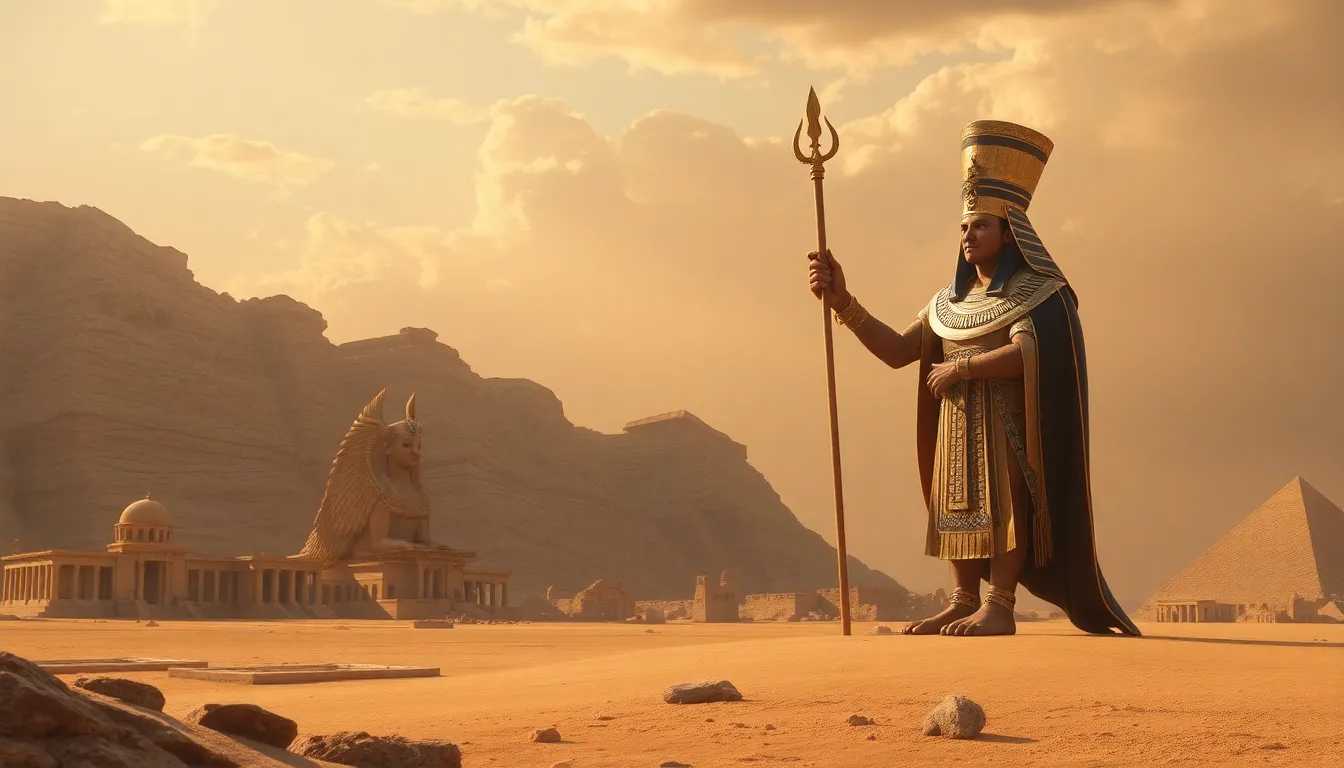The Role of Divine Kingship in Egyptian Literature
I. Introduction
Divine kingship, a vital concept in ancient Egypt, refers to the belief that the Pharaoh was not merely a ruler but also a divine being, an intermediary between the gods and the people. This notion shaped the political, social, and religious landscapes of ancient Egyptian society. Understanding divine kingship is crucial to comprehending the intricacies of Egyptian literature, which often reflects the complexities of this role.
This article aims to explore the historical context, representation, and literary significance of divine kingship in ancient Egyptian literature, providing insights into how this concept influenced not only the texts of the time but also the broader culture of ancient Egypt.
II. Historical Context of Divine Kingship in Ancient Egypt
The Pharaoh held a central role in ancient Egyptian society, serving as a political leader, military commander, and high priest. This multifaceted position was deeply intertwined with the concept of divine kingship.
- Overview of the Pharaoh’s role in society: The Pharaoh was seen as the embodiment of the god Horus on earth, responsible for maintaining ma’at (cosmic order) and ensuring the prosperity of the land.
- Evolution of divine kingship: The concept evolved significantly from the early dynasties through to the Ptolemaic period, adapting to changes in society, culture, and external influences.
- Influence of religion and mythology: Religion played a fundamental role in legitimizing the Pharaoh’s authority, with mythology providing narratives that reinforced the divine nature of kingship.
III. Representation of Divine Kingship in Egyptian Myths
Egyptian mythology is rich with deities that symbolize and embody the principles of divine kingship. Key figures include:
- Horus: Often depicted as a falcon, Horus represents kingship and protection, signifying the Pharaoh’s rightful rule.
- Osiris: As the god of the afterlife, Osiris exemplifies the Pharaoh’s connection to the divine and the promise of eternal life.
Myths illustrating the divine nature of the Pharaoh often depict him as a heroic figure who combats chaos, ensuring the stability of the cosmos. The Pharaoh is symbolically portrayed as a mediator between the gods and the people, reinforcing the belief that he is divinely ordained to govern.
IV. Divine Kingship in Egyptian Literature: Key Texts
Several key texts in ancient Egyptian literature illuminate the concept of divine kingship:
- The Pyramid Texts: These oldest religious texts emphasize the Pharaoh’s divine status and his journey to the afterlife, portraying him as a god.
- The Coffin Texts: Building on the Pyramid Texts, these writings elaborate on the afterlife, depicting the Pharaoh’s role in maintaining order even in death.
- The Book of the Dead: This funerary text reflects on kingship and divinity, emphasizing the Pharaoh’s ongoing connection to the divine realm.
V. Literary Devices and Themes Related to Kingship
Egyptian literature employs various literary devices and themes to depict divine kingship:
- Use of metaphor and allegory: Kingship is often represented through allegorical stories, portraying the Pharaoh as a divine shepherd or a solar deity.
- Themes of order (ma’at) versus chaos (isfet): Literature frequently contrasts the stability of ma’at, represented by the Pharaoh, against the chaos brought by usurpers or enemies.
- Depiction of divine justice: The ruler’s role as a source of justice reinforces the notion that the Pharaoh is divinely guided in maintaining order.
VI. The Role of Divine Kingship in Political Propaganda
Literature served as a powerful tool for legitimizing the Pharaoh’s authority:
- Literature as a tool for legitimizing authority: Texts often glorified the Pharaoh’s achievements and divine status, reinforcing his position as a god-king.
- Examples of royal decrees and inscriptions: Inscriptions on temples and monuments celebrated the Pharaoh’s divine lineage and accomplishments, solidifying public perception.
- Impact on public perception: Literature shaped how the populace viewed their ruler, fostering a sense of loyalty and reverence.
VII. The Decline of Divine Kingship in Later Literature
As Egyptian society evolved, so did the portrayal of divine kingship:
- Changes during the Greco-Roman period: The introduction of foreign influences led to a transformation in how kingship was represented, often diminishing the divine aspects.
- Shifts in literary themes: Later texts reflected societal changes, focusing more on human traits and less on divine authority.
- Legacy of divine kingship: Despite these changes, the foundational ideas of divine kingship continued to influence subsequent Egyptian literature.
VIII. Conclusion
Divine kingship played a pivotal role in shaping ancient Egyptian literature, reflecting the profound connection between the Pharaoh, the divine, and the cosmos. From the earliest texts to the Greco-Roman period, the portrayal of kingship evolved yet remained a cornerstone of Egyptian identity.
The enduring influence of divine kingship on Egyptian culture and literature underscores the significance of studying this concept. It reveals not only the beliefs and values of ancient Egyptians but also the ways in which these ideas continue to resonate in modern interpretations of their rich literary heritage.




